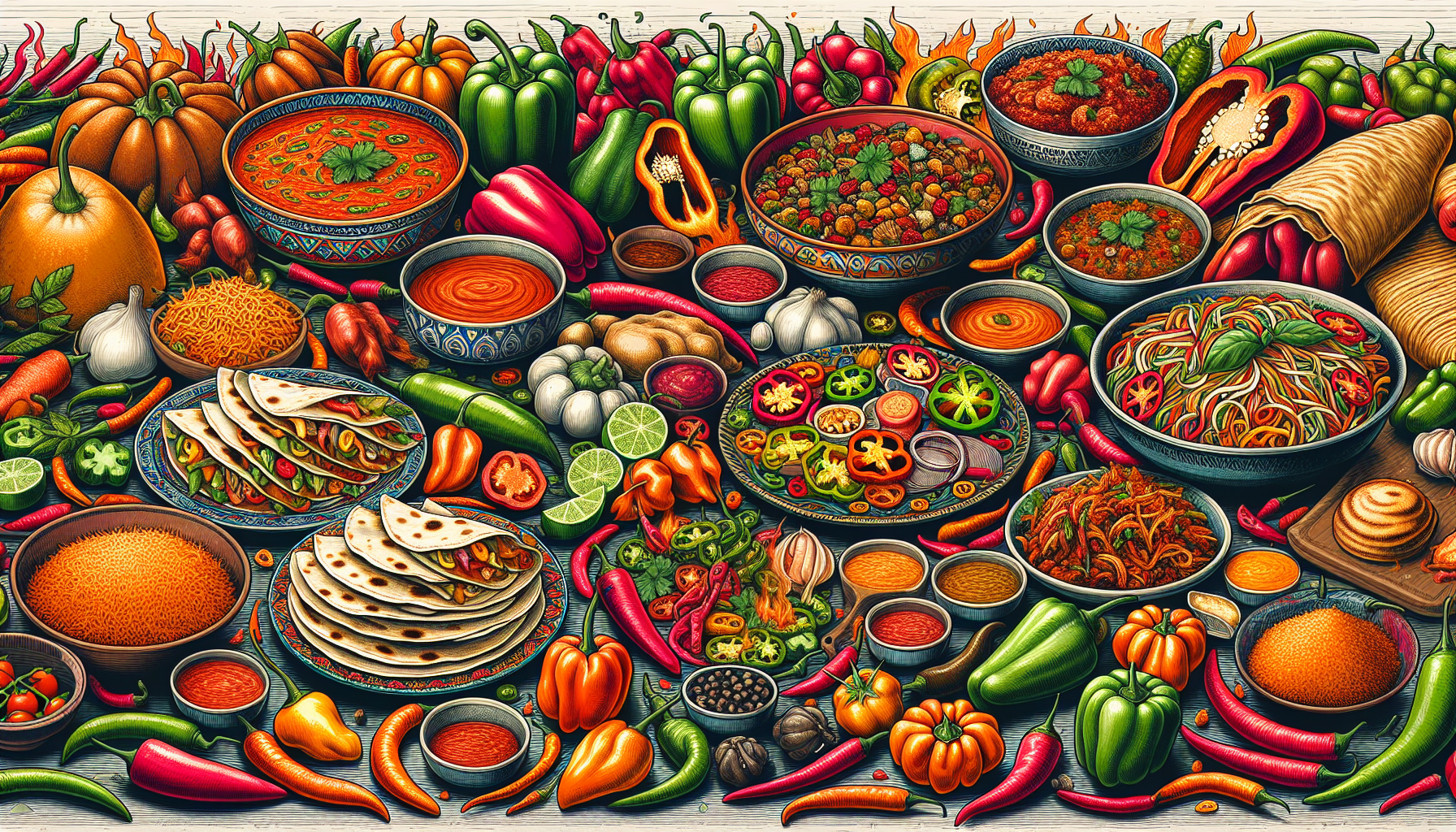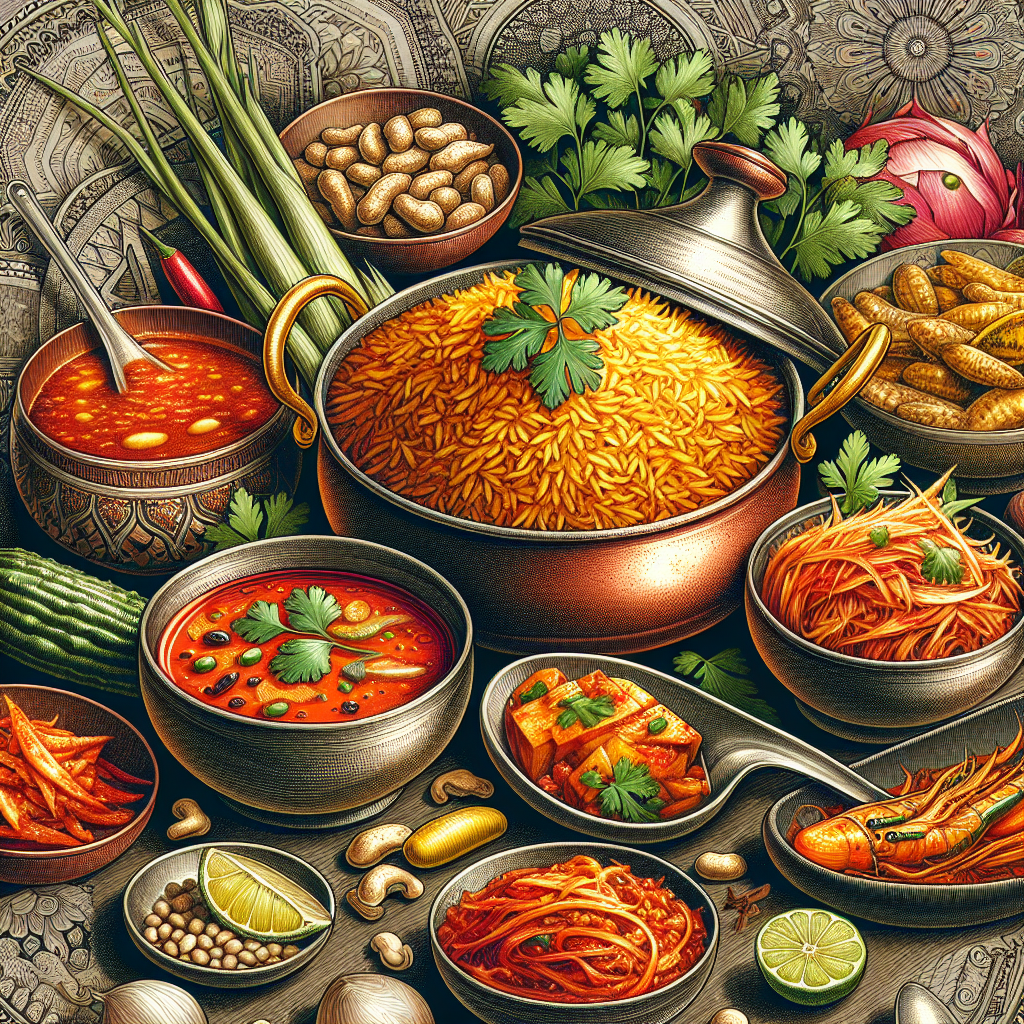Spicy foods are a staple in many cultures around the world, lauded for their ability to enhance flavor and provide a sense of warmth and satisfaction. However, the impact of these fiery ingredients on the digestive system is a topic of much interest and occasional concern. This comprehensive exploration delves into how the body responds to spicy foods, the potential benefits and drawbacks, and how individuals can enjoy them as part of a healthy diet.
The Digestive Journey of Spicy Foods
When spicy foods enter the digestive system, they begin a journey that can have a range of effects. Capsaicin, the active component in chili peppers responsible for the heat, interacts with the mucous membranes of the mouth, esophagus, and stomach, triggering a sensation of spiciness. Depending on an individual’s tolerance and the amount of capsaicin consumed, this can result in a pleasurable experience or discomfort.
As spicy foods continue through the digestive tract, they can influence gastric secretions and motility. For some, this can lead to benefits such as improved digestion and a temporary metabolic boost. However, in sensitive individuals or those with certain digestive conditions, spicy foods might exacerbate symptoms like heartburn or indigestion.
Potential Benefits and Risks
While the consumption of spicy foods is safe for most people, it’s essential to understand both the potential benefits and risks associated with their intake:
-
Benefits:
- Metabolic Boost: Some studies suggest that capsaicin can temporarily increase metabolic rate, which may aid in weight management.
- Digestive Stimulant: Spicy foods can stimulate the production of stomach acids, improving digestion efficiency for some individuals.
- Antimicrobial Properties: Certain spices have been found to possess antimicrobial properties, potentially reducing the risk of infections.
-
Risks:
- Gastrointestinal Irritation: Overconsumption of spicy foods can irritate the gastrointestinal lining, leading to symptoms like pain, nausea, or diarrhea.
- Aggravation of Digestive Disorders: Individuals with conditions such as gastritis or irritable bowel syndrome (IBS) may find that spicy foods worsen their symptoms.
- Heartburn and Acid Reflux: Spicy foods can relax the lower esophageal sphincter, allowing stomach acid to escape into the esophagus, leading to heartburn.
Mitigating Negative Effects
For those who love spicy foods but want to mitigate potential negative effects on the digestive system, consider the following tips:
- Moderation is Key: Enjoy spicy foods in moderation to limit any adverse effects on the digestive system.
- Pair with Soothing Foods: Consuming dairy products like milk or yogurt with spicy foods can help neutralize capsaicin’s heat and provide a protective coating for the stomach lining.
- Stay Hydrated: Drinking water can help facilitate digestion and minimize the impact of spices.
- Listen to Your Body: Pay attention to how your body responds to spicy foods and adjust your intake accordingly.
The Role of Individual Tolerance
Individual tolerance to spicy foods varies widely. Genetic factors, cultural dietary habits, and exposure over time can all influence how well one tolerates spiciness. Those who are unaccustomed to spicy foods may experience more pronounced digestive symptoms, while regular consumers often develop a tolerance, experiencing fewer negative effects.
For a deeper understanding of how dietary habits, including the consumption of spicy foods, can impact the digestive system, consider exploring related topics such as the importance of gut health for overall wellbeing and the role of diet in managing conditions like Crohn’s disease.
Spicy Foods in a Balanced Diet
Incorporating spicy foods into a balanced diet can be beneficial. Combining them with a variety of fruits, vegetables, whole grains, and lean proteins can help to ensure a well-rounded intake of nutrients. It’s also important to consider the role of spices in the context of overall dietary patterns and how they contribute to the maintenance of gastrointestinal health.
External Resources
To further understand the complexities of spicy foods and their impact on the digestive system, here are some niche resources:
- A study on the metabolic effects of capsaicin on weight management.
- Research exploring the gastroprotective effects of certain spices.
- An analysis of the antimicrobial properties of spices against foodborne pathogens.
By consulting these resources, readers can gain a more nuanced appreciation for the interaction between spicy foods and digestive health.
Conclusion
Spicy foods are a vibrant and exciting part of many culinary traditions, offering a range of flavors and potential health benefits. While they can be enjoyable and even beneficial when consumed in moderation, it’s essential to consider individual tolerance levels and the potential impact on digestive health. By integrating spicy foods thoughtfully into one’s diet and being mindful of the body’s responses, it is possible to savor the heat without discomfort.
For those seeking to learn more about maintaining digestive health while enjoying a variety of foods, Avix Health offers a wealth of information on topics from managing food intolerances to enhancing gut microbiota. Remember, the key to reaping the benefits of any food, spicy or otherwise, lies in understanding its effects on your body and finding the right balance for your individual health.



